If you’re just starting out with swimming, it’s important to focus on building your endurance and technique before worrying about speed. The average time to swim 300m for beginners can vary depending on the stroke you’re using, but a good goal to aim for is around 6-9 minutes.
For freestyle (also known as front crawl), the key is to focus on your breathing and maintaining a steady pace. Start by swimming at a comfortable pace and gradually increasing your speed as you build up your endurance. Aim to complete 300m in around 6-8 minutes, taking breaks as needed.
For breaststroke, it’s important to focus on proper form and technique. Start at a comfortable pace and gradually increase your speed as you build up your endurance. Aim to complete 300m in around 7-10 minutes, taking breaks as needed.
Table of Contents
Average Time to Swim 300m Freestyle For Males
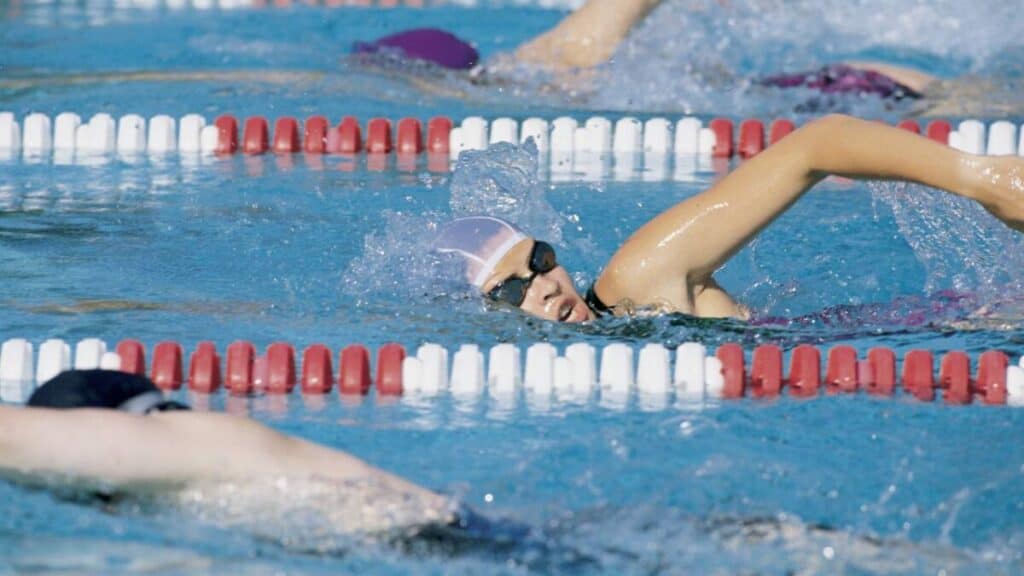
A male can swim 300m in an average time of 07:35 using a freestyle or front crawl swimming method. More advanced swimmers can swim 300m around 04:30 with professional swimmers reaching a time of around 02:50 seconds or less.
| Age | Average Time to Swim 300m Male |
| 15 -20 | 07:27 |
| 20-25 | 06:30 |
| 25-30 | 06:48 |
| 30-35 | 07:03 |
| 35-40 | 07:18 |
| 40-45 | 07:30 |
| 45-50 | 07:50 |
| 50-55 | 08:17 |
| 55-60 | 08:39 |
| 60-65 | 09:05 |
Check out my big swim data analytics that contains every swimming distance by age and gender in a full comparison table for beginners and intermediates. You can compare your swim average times against every distance in your age and ability group.
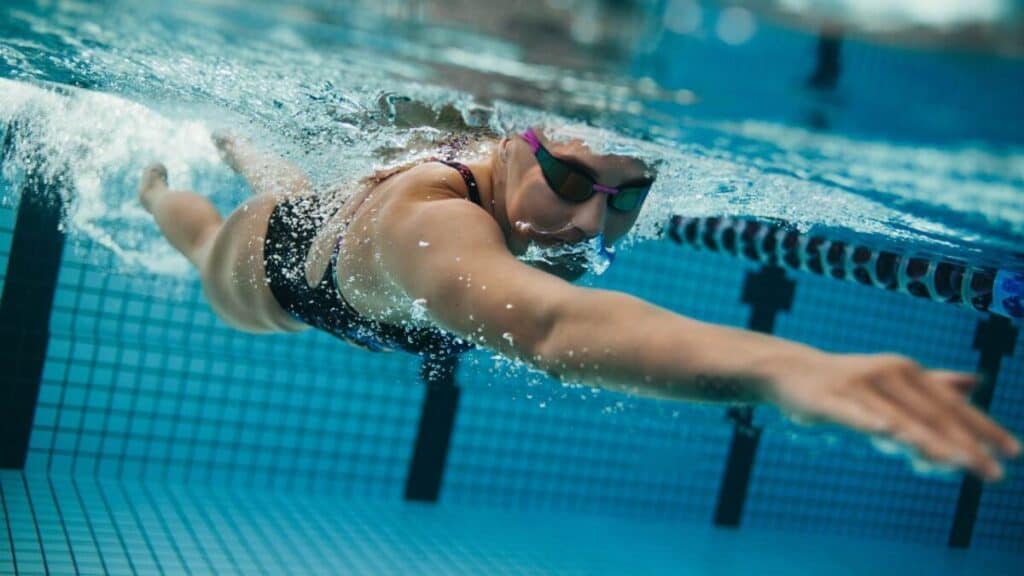
Average Time to Swim 300m Freestyle For Females
A female can swim 300m in an average time of 08:18 using a freestyle or front crawl swimming method. More advanced swimmers can swim 300m around 05:45. This depends on the age, ability and fitness level of the swimmer.
| Age | Average Time to Swim 300m Female |
| 15 -20 | 07:53 |
| 20-25 | 07:02 |
| 25-30 | 07:23 |
| 30-35 | 07:29 |
| 35-40 | 07:32 |
| 40-45 | 07:41 |
| 45-50 | 07:59 |
| 50-55 | 08:03 |
| 55-60 | 08:33 |
| 60-65 | 09:26 |
What is The World Record 300m Freestyle Swim Time?
According to the search results, there is no specific world record for the 300m freestyle swim. However, we can look at the world records for other distances in freestyle swimming.
However, the average time for a professional swimmer to cover 300 meters is around 3 minutes and 30 seconds. Obviously, this can vary depending on various factors such as age, gender, training regimen, and technique. Therefore, a very good 300m swim time would be anything under 4 minutes.
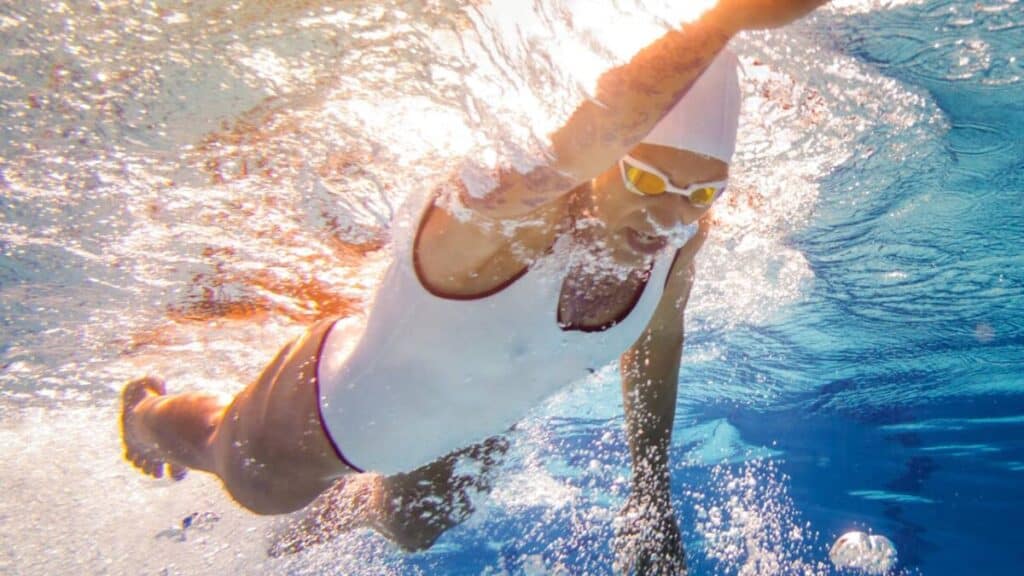
How Many Laps of a Swimming Pool is 300m?
If you’re wondering how many laps of a swimming pool is 300m, it depends on the length of the pool. For example, if you’re swimming in a 50m pool, then you would need to swim 6 laps to complete 300m.
However, if you’re swimming in a 25m pool, then you would need to swim 12 laps to cover the same distance. It’s important to note that a lap refers to swimming from one end of the pool to the other, regardless of whether it’s a 25-yard, 25-meter or 50-meter swimming pool.
So, always keep in mind the length of the pool you are swimming in when calculating how many laps it takes to reach your desired distance.
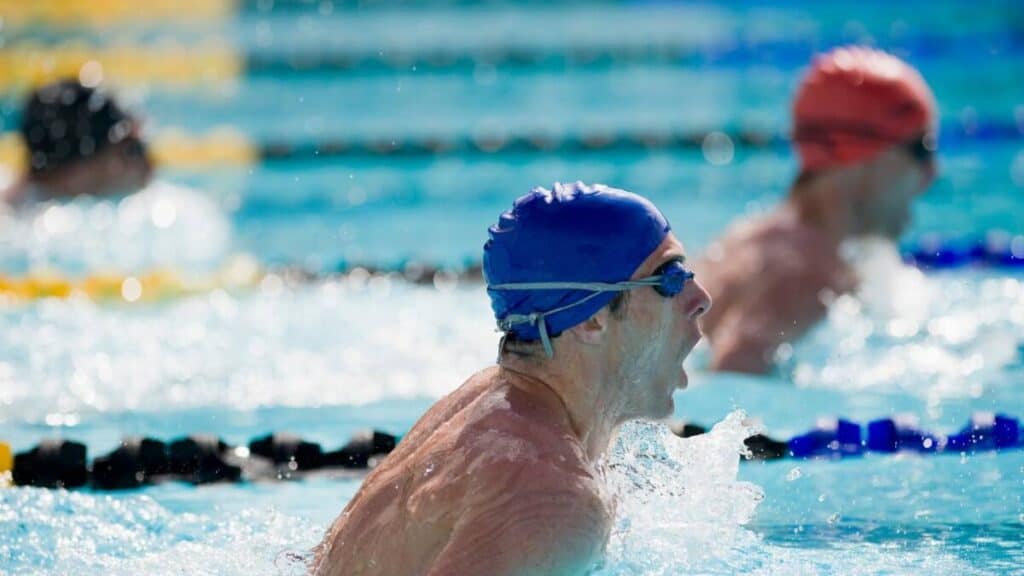
Average Time to Swim 300m Breaststroke For Males
A male can swim 300m breaststroke in an average time of 07:59. More advanced swimmers can swim 300m breaststroke around 04:14 with professional swimmers reaching a time of around 03:00 or less.
| Age | Average Time to Swim 300m Male |
| 15 -20 | 07:11 |
| 20-25 | 06:54 |
| 25-30 | 07:02 |
| 30-35 | 07:27 |
| 35-40 | 07:33 |
| 40-45 | 07:41 |
| 45-50 | 08:14 |
| 50-55 | 08:20 |
| 55-60 | 08:43 |
| 60-65 | 09:13 |

Average Time to Swim 300m Breaststroke For Females
A female can swim 300m breaststroke in an average time of 08:42. More advanced swimmers can swim 300m breaststroke around 05:49. This depends on the age, ability and fitness level of the swimmer.
| Age | Average Time to Swim 300m Female |
| 15 -20 | 07:37 |
| 20-25 | 07:20 |
| 25-30 | 07:47 |
| 30-35 | 07:53 |
| 35-40 | 07:56 |
| 40-45 | 08:05 |
| 45-50 | 08:12 |
| 50-55 | 08:21 |
| 55-60 | 08:39 |
| 60-65 | 09:31 |
What is The World Record 300m Breaststroke Swim Time?
The current world record for the men’s 300m breaststroke is held by Anton Chupkov from Russia, who swam it in an impressive time of 2 minutes and 46.12 seconds at the FINA World Championships in Gwangju, South Korea in 2019.
On the other hand, the women’s world record for the same distance is held by Rikke Møller Pedersen from Denmark, who swam it in a time of 3 minutes and 1.41 seconds at the European Short Course Swimming Championships in Herning, Denmark in 2013.
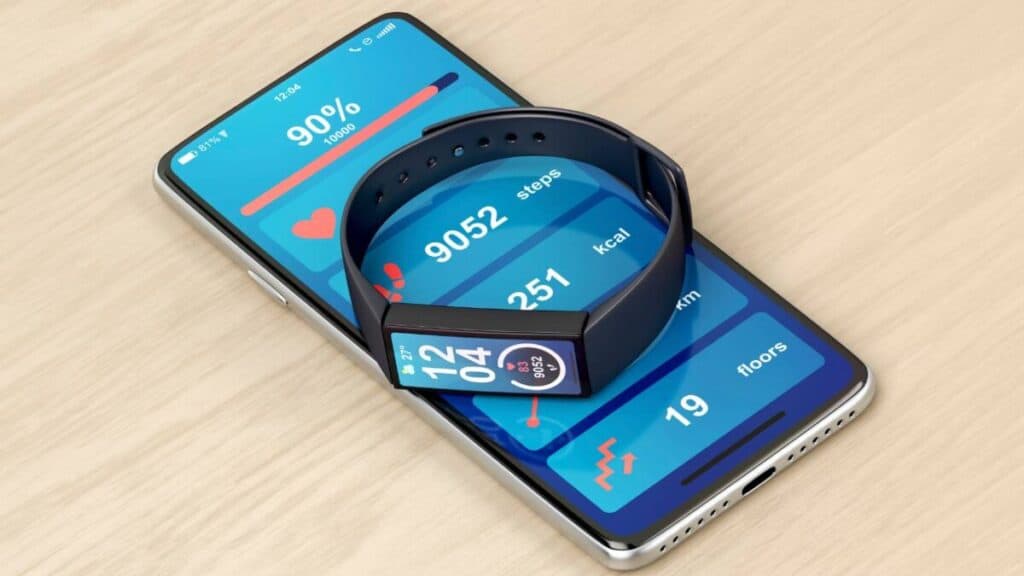
How Many Calories Do You Burn Swimming 300m?
Swimming is a great way to stay active and burn calories. If you’re wondering how many calories you can burn swimming 300m, the answer depends on several factors, including your weight, stroke, speed, and duration.
On average, swimming burns between 300 to 600 calories per hour. However, the number of calories burned during a specific distance or time period can vary. According to various sources, a person weighing around 150 pounds can burn approximately 90-110 calories by swimming freestyle for 300m in about 8 minutes.
A person weighing around 200 pounds can burn approximately 112-136 calories while someone weighing around 180 pounds can burn approximately 100-133 calories during the same activity. The table below gives you a good estimate of how many calories you will burn swimming 300m.
| Weight (Pounds) | Calories Burned |
| 150lbs | 93 |
| 160lbs | 99 |
| 170lbs | 104 |
| 180lbs | 109 |
| 190lbs | 115 |
| 200lbs | 121 |
| 210lbs | 127 |
| 220lbs | 133 |
| 230lbs | 139 |
| 240lbs | 145 |
Other Swimming Distances You Might Find Helpful
Average Time to Swim 300m Summary
If you’re a beginner or intermediate swimmer looking to improve your freestyle and breaststroke, it’s important to set goals and track your progress. One way to do this is by measuring your average time for swimming 300m of freestyle and breaststroke.
A good 300m time for beginners is around 7-9 minutes, while intermediate swimmers should aim for 5-6 minutes. However, it’s important to note that these times can vary depending on factors such as age, fitness level, and technique.



